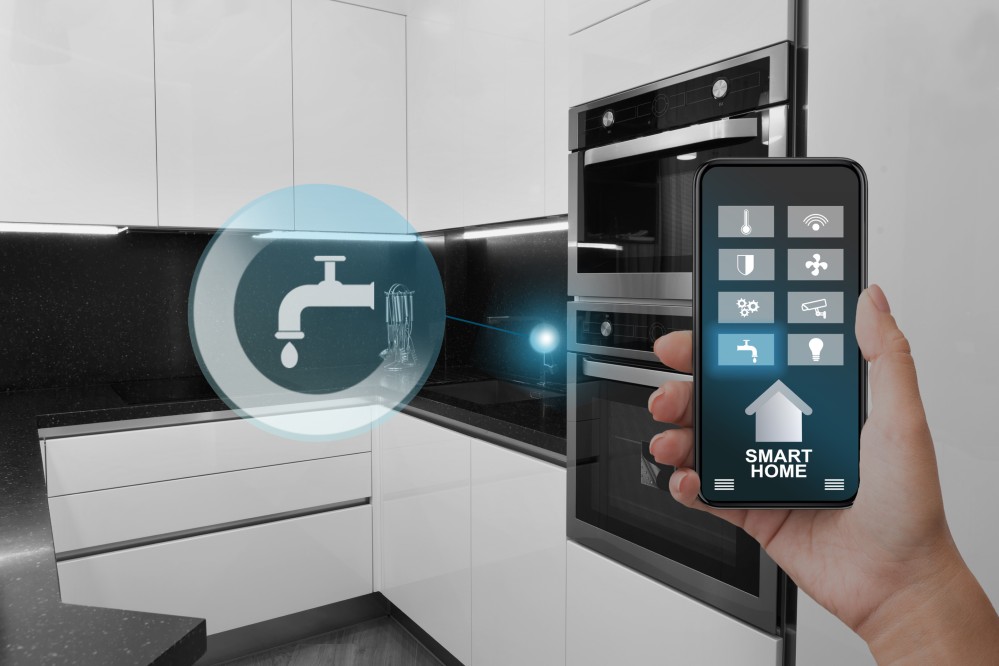
Future of Water Conservation: Innovations and Impacts
Share
In today's rapidly evolving world, the future of water conservation is a topic of paramount importance, especially for tech professionals and enthusiasts who are keen on leveraging technology to solve global challenges. As water scarcity becomes an increasingly pressing issue, innovative solutions are emerging to address this crisis. The integration of cutting-edge technologies promises not only to conserve water but also to transform how we manage this vital resource.
The significance of water conservation cannot be overstated. With the global population expected to reach nearly 10 billion by 2050, the demand for freshwater will soar, putting immense pressure on existing water resources. Consequently, the need for efficient water management systems is more critical than ever. This article delves into the future of water conservation, exploring the role of technology in reshaping this landscape.

Smart Water Systems: A Technological Leap
One of the most exciting advancements in the realm of water conservation is the rise of smart water systems. These systems leverage the Internet of Things (IoT) to monitor and manage water usage in real-time. By providing detailed insights into consumption patterns, smart water systems empower users to make informed decisions about their water use, ultimately reducing waste and promoting sustainability.
For instance, smart meters can track water usage at granular levels, allowing households and industries alike to identify leaks and inefficiencies swiftly. According to a [recent article on eco water-saving devices](https://iottechnologies.io/blogs/our-latest-posts/eco-water-saving-devices), IoT-enabled sensors can detect anomalies in water flow, prompting immediate action to rectify issues.
Innovative Technologies in Water Management
Beyond smart water systems, several other technologies are making waves in the field of water conservation. These innovations are not only improving efficiency but also changing how we interact with water resources.
Artificial Intelligence and Machine Learning
Artificial Intelligence (AI) and Machine Learning (ML) are playing pivotal roles in optimizing water management. These technologies analyze vast amounts of data to predict water demand, identify trends, and optimize supply chains. By forecasting water needs, AI systems can ensure that water is allocated efficiently, reducing wastage and conserving resources.
Moreover, AI-driven irrigation systems are revolutionizing agriculture by delivering precise amounts of water based on crop needs and environmental conditions. This precision agriculture approach significantly reduces water consumption while enhancing crop yields.
Blockchain for Efficient Resource Management
Blockchain technology is another game-changer in the future of water conservation. By providing a decentralized and transparent platform for managing water resources, blockchain ensures accountability and reduces the risk of over-exploitation. Smart contracts can automate water distribution, ensuring equitable access and efficient usage.
Water Recycling and Reuse: A Sustainable Solution
Water recycling and reuse are essential components of any comprehensive water conservation strategy. These processes involve treating wastewater to make it suitable for reuse in various applications, from irrigation to industrial processes.
Advanced treatment technologies, such as membrane filtration and UV disinfection, are enhancing the efficiency and effectiveness of water recycling efforts. As a result, recycled water is now being used in applications ranging from agricultural irrigation to industrial cooling, significantly reducing the demand for freshwater. For more on sustainable water practices, check out this [link](https://www.constellation.com/energy-101/water-conservation-tips0.html).
Greywater Systems
Greywater systems are gaining popularity as a means of reducing household water consumption. These systems capture and treat water from sinks, showers, and washing machines, making it suitable for non-potable uses such as toilet flushing and landscape irrigation. By reusing greywater, households can reduce their reliance on freshwater supplies and lower their water bills.
Learn more about [sustainable household water use](https://iottechnologies.io/blogs/our-latest-posts/sustainable-household-water-use) in our dedicated article.
Policy and Advocacy: Paving the Way for Change
Technology alone cannot solve the challenges of water conservation. It is imperative to have supportive policies and advocacy efforts that drive change at both the grassroots and policy levels. Governments and organizations worldwide are recognizing the need for comprehensive water management strategies that incorporate technological advancements.
For instance, policies that incentivize the adoption of water-efficient technologies can accelerate their deployment and uptake. Additionally, public awareness campaigns can educate communities about the importance of water conservation and the role they can play in safeguarding this precious resource.
Collaboration and Partnerships
Collaboration among various stakeholders, including governments, private companies, and non-profit organizations, is essential for the successful implementation of water conservation initiatives. By working together, these entities can pool resources, share expertise, and scale innovative solutions to address water challenges globally.
Explore how [dual flush toilets](https://iottechnologies.io/blogs/our-latest-posts/what-is-a-dual-flush-toilet-4) can contribute to conservation efforts in our related article.
Conclusion: Embracing a Sustainable Future
As we look to the future of water conservation, it is clear that technology will play a pivotal role in shaping sustainable practices. From smart water systems and AI-driven management to water recycling and policy advocacy, the path forward requires a multifaceted approach.
For tech professionals and enthusiasts, this presents an exciting opportunity to innovate and drive change. By embracing these technologies and collaborating across sectors, we can ensure a sustainable water future for generations to come.

FAQ
1. What are smart water systems?
Smart water systems utilize IoT technology to monitor and manage water usage in real-time, providing insights that help reduce waste and promote sustainability.
2. How does AI contribute to water conservation?
AI and Machine Learning analyze data to optimize water management by predicting demand, identifying trends, and ensuring efficient resource allocation.
3. What role does policy play in water conservation?
Supportive policies incentivize the adoption of water-efficient technologies and drive public awareness, crucial for implementing effective water conservation strategies.
